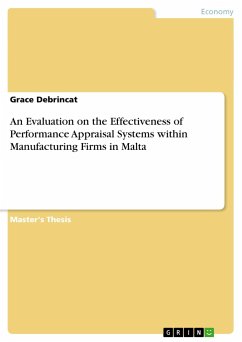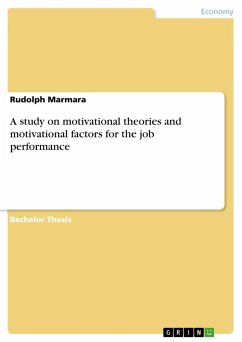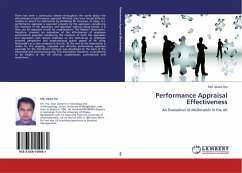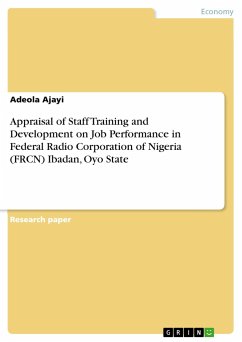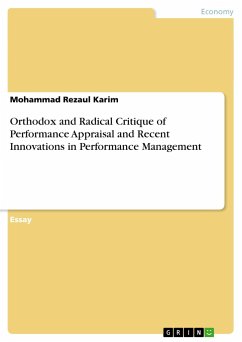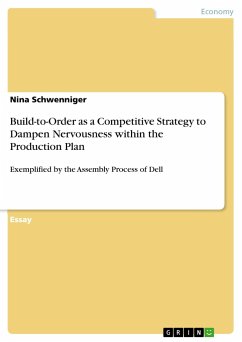Master's Thesis from the year 2011 in the subject Leadership and Human Resource Management - Miscellaneous, grade: B+, University of Leicester, course: Masters Degree - Employee Relations and Human Resource Management, language: English, abstract: Manufacturing firms based in Malta are striving to improve productivity levels in their quest to sustain their competitiveness, thus the need to assess employees' performance is becoming crucial. Performance Appraisals (PA) is a tool which is associated with employee performance evaluation. However, researchers tend to disagree on the effectiveness of such systems. Academics claim that PAs improve employees' performance through commitment, motivation and output increases, whilst providing an optimal basis for a reward system and training needs. Conversely, it is argued that PAs are flawed from inception since they are subjective, biased and unfair. Additionally research strongly indicates that no conclusive evidence can be provided whether productivity increases as a direct result of PAs outcome. Thus, the objective of this dissertation is to evaluate the effectiveness of PAs within manufacturing firms in Malta. The study critically assesses research on PAs and their effectiveness towards company goals, whilst identifying a set of criteria derived from the literature to test the extent of PAs effectiveness. The methodology chosen is of a qualitative and exploratory nature based on a non-probability, self-selection sample applied through interviews with HR Practitioners. The interview responses are then categorised in themes, each evaluated to test the effectiveness of PAs. The research reveals that medium and large-sized manufacturing firms in Malta, undertake PAs mostly as a control mechanism and reward system. The findings reject the notion that PAs are totally flawed and ineffective. However, HR Practitioners tend to agree that subjectivity in ratings, appraisers' incompetency and reluctance by managers to undertake PAs, conduces to ineffective outcomes. The investigation discloses that HR Practitioners experience difficulties in assessing PAs fairness. Moreover, tangible productivity improvements including production output increases and higher quality could not be credibly associated with monetary savings as a direct result of PAs outcomes. Based on the outcome of this dissertation, the author recommends a number of initiatives to improve appraisees' productivity as a direct result of PAs outcome, thus ensuring their effectiveness. These include setting formal PAs policies, training appraisers to administer PAs and ensuring that formal performance standards are in place. [...]
Hinweis: Dieser Artikel kann nur an eine deutsche Lieferadresse ausgeliefert werden.
Hinweis: Dieser Artikel kann nur an eine deutsche Lieferadresse ausgeliefert werden.

